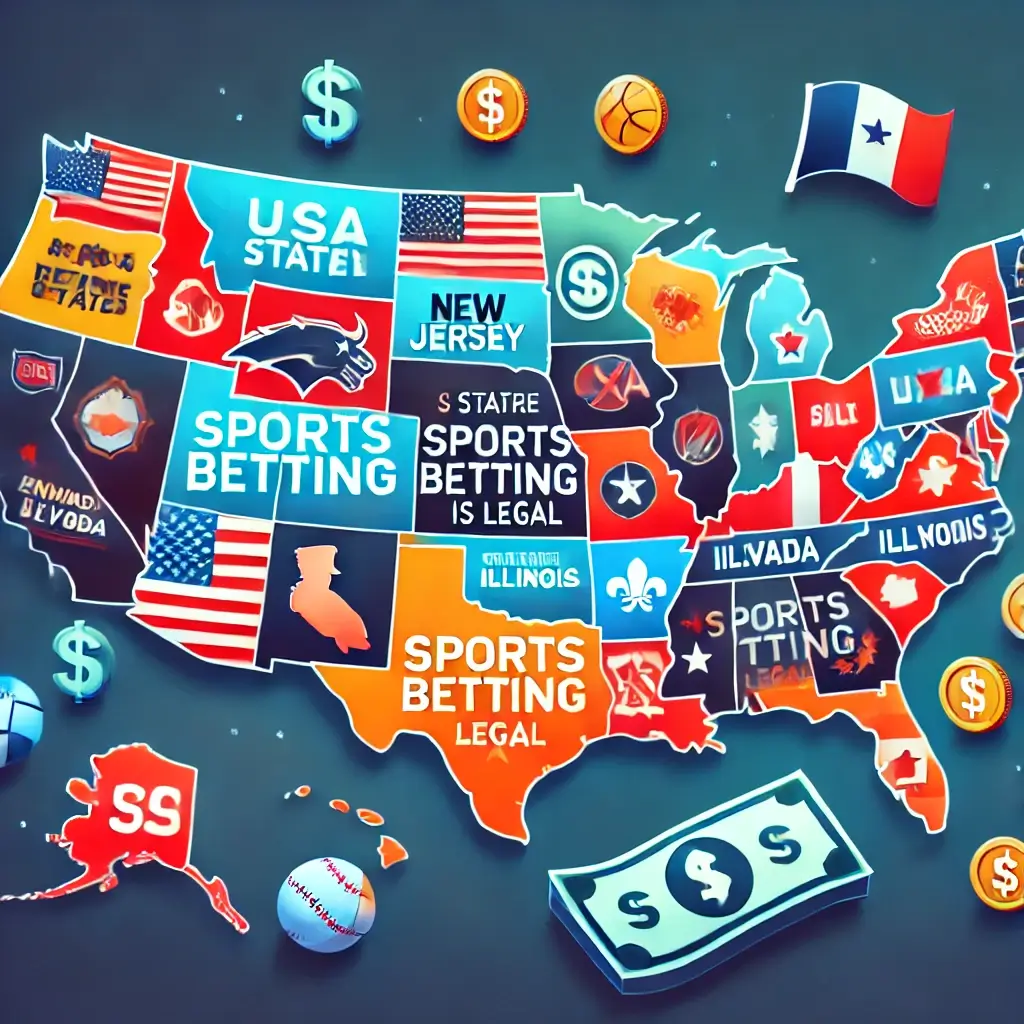With sports betting now legal in 38 states across the U.S., the landscape of gambling has transformed significantly. As more states embrace the potential revenue from regulated sports betting, residents from certain states have shown a particularly strong penchant for wagering. Here’s a look at which states are leading the charge in sports betting activity.
The Leaders in Sports Betting
Several states have emerged as heavy hitters in the sports betting industry, driven by large populations, strong sports cultures, and favorable regulations.
1. New Jersey
New Jersey has quickly become a hub for sports betting, often surpassing Nevada in monthly handle (the total amount wagered). According to the New Jersey Division of Gaming Enforcement, the state saw nearly $10 billion in sports bets in 2021 alone. The state’s early adoption of online betting platforms has contributed significantly to its success.
2. Nevada
As the long-time gambling capital of the U.S., Nevada remains a major player in sports betting. Despite stiff competition from other states, Nevada’s established infrastructure and tourist-driven betting market keep it at the forefront. The Nevada Gaming Control Board reported over $5.3 billion in sports wagers for 2021.
3. Pennsylvania
Pennsylvania has also seen substantial growth in sports betting. The Pennsylvania Gaming Control Board noted that the state’s sports betting handle for 2021 was over $6 billion. Pennsylvania benefits from a large population and a strong sports culture, particularly around Philadelphia and Pittsburgh.

4. Illinois
Since launching sports betting in 2020, Illinois has rapidly climbed the ranks. The Illinois Gaming Board reported that the state’s handle reached approximately $7 billion in 2021, thanks in part to Chicago’s large market and the legalization of mobile betting.
5. New York
New York’s entry into the sports betting market was highly anticipated, and it did not disappoint. With mobile sports betting legalized in January 2022, the state saw immediate and massive engagement. New York’s large population and passion for sports teams have quickly made it a top contender.
Factors Driving High Betting Activity
Several key factors contribute to the high levels of sports betting activity in these states:
- Population Size: States with larger populations naturally see more betting activity due to the greater number of potential bettors.
- Sports Culture: States with a rich sports heritage and passionate fan bases tend to engage more in sports betting.
- Mobile Betting: The availability of mobile betting platforms significantly increases accessibility and convenience, driving higher participation rates.
- Regulatory Environment: States with favorable regulations, such as low tax rates on winnings and fewer restrictions on betting options, attract more bettors.
The Future of Sports Betting in the U.S.
As more states consider legalizing sports betting, the landscape will continue to evolve. States like Florida, Texas, and California are seen as potential giants in the industry due to their large populations and sports cultures. However, regulatory hurdles and political debates still need to be navigated in these states.
Moreover, the impact of sports betting on state economies is becoming increasingly evident. Tax revenues from sports betting provide significant funds for public services, infrastructure projects, and educational programs. States that have embraced sports betting are witnessing not only economic benefits but also increased tourism and entertainment industry growth.
Conclusion
Sports betting has firmly established itself as a major industry in the U.S., with New Jersey, Nevada, Pennsylvania, Illinois, and New York leading the way. The combination of large populations, passionate sports fans, and progressive regulations has driven substantial betting activity in these states. As more states join the fold, the sports betting landscape will continue to expand, promising exciting developments for bettors and state economies alike.
For more information on sports betting statistics and trends, you can visit resources like the American Gaming Association (AGA) and individual state gaming boards.





